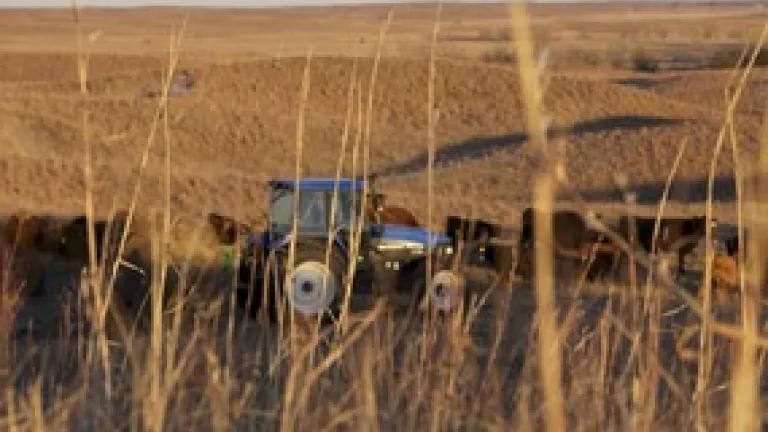Keystone XL tar sands pipeline application poses same threats and needs a fresh review process

TransCanada has applied to the State Department for a proposed pipeline that would run from the Canadian border to Steele City, Nebraska. This is a new application for the northern segment of the Keystone XL tar sands pipeline that was rejected by President Obama in January. New, but still posing the same threats to our farms, water and climate. This application means that the environmental review and national interest determination will also start anew. The State Department has indicated that the review will take at least until early 2013. But more important than the timeline, is the quality of the review. A thorough, rigorous and independent review will show that the Keystone XL tar sands pipeline is not in our national interest.
The application comes at the same time that Republicans in Congress have been pushing a provision to approve the full Keystone XL tar sands pipeline in the transportation bill that will go into conference next week. We’ve heard loud and clear from the Senate that Keystone XL approval does not belong in the transportation bill or in Congressional hands at all and the President has threatened to veto the bill if approval of Keystone XL is included. The fact that TransCanada is moving ahead with its applications for the northern and southern segments of the project is another indication that Congress should let the normal permitting process – with its environmental review and space for public input – move forward.
This application for the northern route also comes at the same time that TransCanada is moving ahead with getting permits for the southern segment of the Keystone XL tar sands pipeline project that would run from Cushing, Oklahoma to Port Arthur and Houston, Texas. In Texas and Oklahoma, TransCanada is seeking permission from the Army Corps of Engineers to rely on a “nationwide” permit, instead of individual permits, to construct some water crossings. In fall 2011, EPA wrote to the Corps to express concerns about relying on a nationwide permit to approve portions of the project. EPA’s letter identified 60 crossings in the Corps’ Galveston district alone that EPA found would not qualify for nationwide permitting and would “result in significant cumulative impacts on the aquatic ecosystem.”
This pipeline and the tar sands it will transport are nothing but trouble and landowners along the path as well as people across the country feeling the impacts of climate change deserve a rigorous new review – both to reanalyze the earlier faulty reviews and to assess the new information and changed circumstances that the application faces this time around. In Nebraska, for example, although TransCanada claims to have re-routed the pipeline around the Sandhills, it still crosses the Ogallala Aquifer and landowners in Nebraska along the new route say that their land is still in the Sandhills region. The upcoming environmental review should not rely on the earlier, inadequate environmental impact statement, but needs to make a fresh start and consider the full range of impacts that this pipeline would have on our water, land, health and climate.
So it is unfortunate, that TransCanada is claiming that a full new review is not needed and asking that the State Department just do the more minimal environmental assessment. Not only was the environmental review of the earlier Keystone XL tar sands pipeline faulty, but a lot has changed since it was undertaken. We now know that Keystone XL will actually cause oil prices to rise in the United States. We know that the oil industry wants the full project – northern and southern sections – in order to send tar sands overseas and not to help U.S. energy security. And we have seen changes in the U.S. oil market with the growth of the Bakken oil fields and plans for a dedicated pipeline to take Bakken oil to the refineries that it no longer needs Keystone XL to help out. In fact, the Energy Information Administration expects that by 2012, enough transportation projects will have come online to move current and expected increased in Bakken production.
TransCanada’s application might be the same-old, same-old. But, the State Department review needs to take a fresh look at a risky, dirty and expensive energy project.
